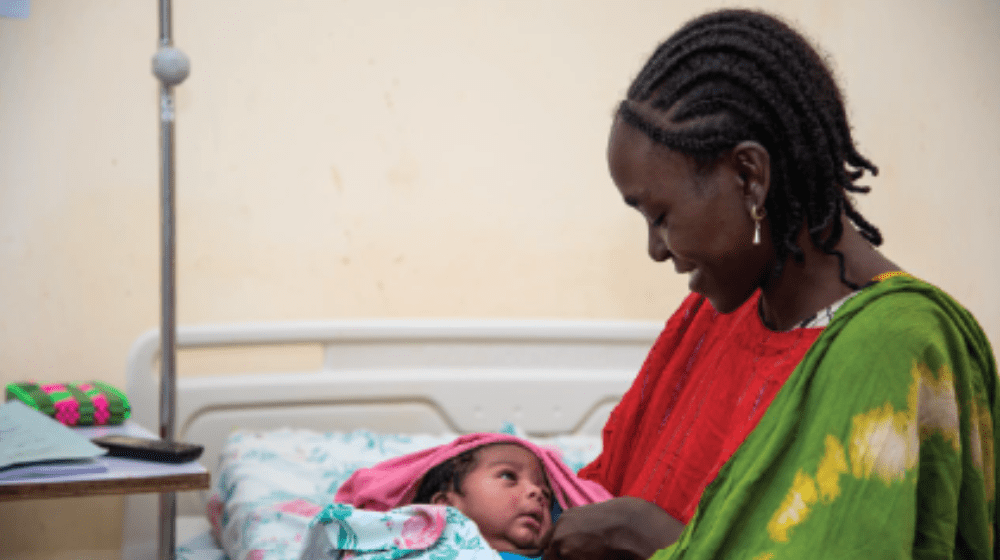Adanech, 26, is a mother of five from Gelana Woreda, in the West Guji Zone of the Oromia Region. She recently welcomed her fifth child at the new Gelana Primary Hospital. This was her first time giving birth in a health facility. ''They saved our lives. Both me and my baby are doing well'' she said.
Adanech gave birth to all of her four older children at home. There was no healthcare facility equipped to deal with birth complications in the woreda. The culture of seeking antenatal care in the community is low. This coupled with recurring conflict and inadequate infrastructure, created significant barriers for women and girls to receive essential reproductive health and family planning services. The only option was to travel to Dilla Teaching Hospital in Dilla City, Gedeo Zone, 70 km from Gelana Woreda. Women with pregnancy-related complications had to travel the two-hour drive on a rough road, usually on a motorbike. The consequences of these challenges were dire. The woreda was widely known for serious birth complications, including uterine ruptures, which were often treated at Dilla Teaching Hospital.
The establishment of Gelana Primary Hospital in Tore City, Gelana Woreda has brought a ray of hope to the community. UNFPA with funds from KOICA is supporting the hospital by increasing its capacity through the provision of medical equipment and training for frontline workers. One of the initiatives is equipping the Hospital with the necessary resources, including operation theater tables, anesthesia machines, ultrasound machines, neonatal resuscitation tables, and emergency reproductive health kits to enhance its capacity to provide quality health services in the two adjacent zones, West Gujji and Gedeo.
When Adanech experienced unexpected bleeding late in her pregnancy, she was relieved to know that there was a hospital nearby. ''I had a similar incident in the past and I gave birth to a still baby at home'' she said. This time, her family rushed her to the hospital. Upon arrival, Adanech underwent a thorough examination, and it was determined that a natural birth would not be possible in her case. She was advised to remain in the hospital until her delivery date for monitoring and medical care.
This particular case is of significant importance to the hospital as it marks its first cesarean section since its establishment. The stakes were high, but healthcare workers were determined for a successful outcome.
It was a joyful day for the staff and Adanech, who gave birth to a healthy baby boy.
''I am grateful for the hospital and the doctors. It was an eye-opening experience and I promised to become vocal in my community so that women seek medical attention during their pregnancy and child birth. Now that the hospital is here and well equipped, we have no excuse,'' she said.
Adanech learned the importance of family planning at the hospital and she has made the decision to embrace it, recognizing the benefits it can bring to her growing family.


